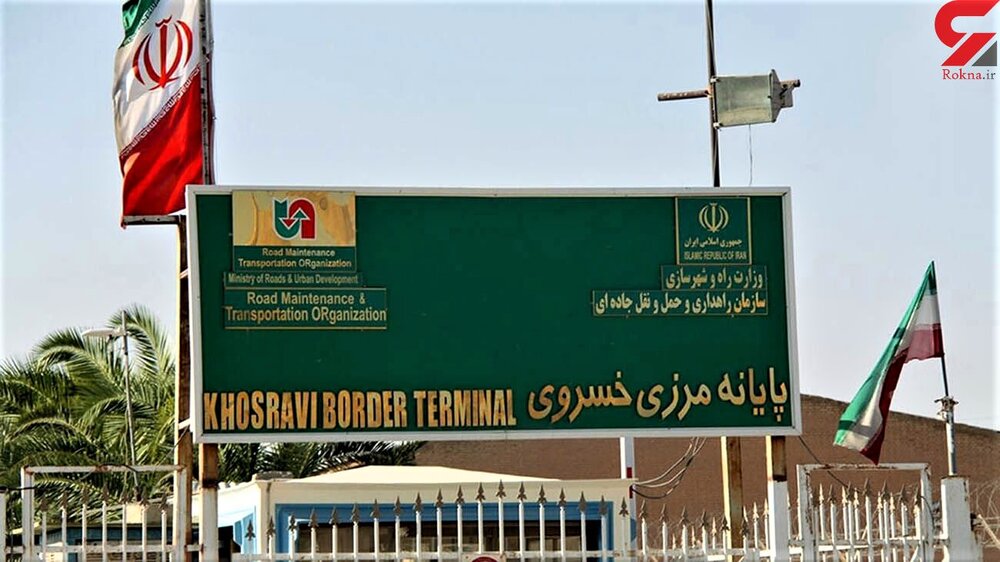
Khosravi border between Iran, Iraq reopens

Ruhollah Latifi said, “The border crossing resumed operation on Thursday following the Iraqi side’s announcement. Iranian goods can be transported to Iraq through this border, and no restriction has been already announced”, Mehr news agency reported.
On July 10, Farzad Piltan, the director-general of Iran’s Trade Promotion Organization (TPO)’s Office of Arabian and African Countries, had announced that Iran and Iraq were going to resume trade exchanges through Mandali and Shalamcheh borders following the reopening of the mentioned crossings from the Iraqi side.
“The Iraqi government has agreed to reopen the Shalamcheh and Mandali borders after the joint trade borders with the Kurdistan Region were reopened earlier,” the official said.
Following the outbreak of the new coronavirus, all trade borders between Iran and Iraq were closed, however with the partial control of the pandemic’s first wave, trade borders between the two countries were gradually reopened, he added.
“Trade from the mentioned border crossings is going to be carried out in accordance with international health and safety protocols”, the official underscored.
Noting that declining trade with Iraq would hurt both sides, Pilten added: "Diplomatic efforts and negotiations with Iraqi officials led the Iraqi government to agree to the limited reopening of borders in Shalamcheh, and Somar, and the process of exporting from these borders will begin soon.”
He expressed hope that with the reopening of all trade borders with Iraq, the trade between the two countries will return to normal and will continue to grow.
Head of Iraq's Border Crossing Authority, Omar al-Waeli had announced on July 6 that the country's Prime Minister Mustafa al-Kazemi agreed to resume partial trade in the Mandali and Shalamcheh border markets with Iran.
"According to this decision, 250 shipments from Iran will enter Iraq for two days a week through the Shalamcheh border in Basra and Mandali border in Diyala province," al-Waeli said.
Head of Iraq's Border Crossing Authority said: "Only the exchange of goods is allowed and the entry of passengers into the border crossings for any reason is prevented."
In mid-March, the Iraqi Border Crossing Authority closed border crossings with Iran and its neighbors to prevent the coronavirus outbreak.


Trump weighs using $2 billion in CHIPS Act funding for critical minerals

Codelco cuts 2025 copper forecast after El Teniente mine collapse

Electra converts debt, launches $30M raise to jumpstart stalled cobalt refinery

Abcourt readies Sleeping Giant mill to pour first gold since 2014

Barrick’s Reko Diq in line for $410M ADB backing

Nevada army depot to serve as base for first US strategic minerals stockpile

Tailings could meet much of US critical mineral demand – study

Viridis unveils 200Mt initial reserve for Brazil rare earth project

SQM boosts lithium supply plans as prices flick higher

Energy Fuels soars on Vulcan Elements partnership

Northern Dynasty sticks to proposal in battle to lift Pebble mine veto

Giustra-backed mining firm teams up with informal miners in Colombia

Critical Metals signs agreement to supply rare earth to US government-funded facility

China extends rare earth controls to imported material

Galan Lithium proceeds with $13M financing for Argentina project

Silver price touches $39 as market weighs rate cut outlook

First Quantum drops plan to sell stakes in Zambia copper mines

Ivanhoe advances Kamoa dewatering plan, plans forecasts

Texas factory gives Chinese copper firm an edge in tariff war

Energy Fuels soars on Vulcan Elements partnership

Northern Dynasty sticks to proposal in battle to lift Pebble mine veto

Giustra-backed mining firm teams up with informal miners in Colombia

Critical Metals signs agreement to supply rare earth to US government-funded facility

China extends rare earth controls to imported material

Galan Lithium proceeds with $13M financing for Argentina project

Silver price touches $39 as market weighs rate cut outlook

First Quantum drops plan to sell stakes in Zambia copper mines

Ivanhoe advances Kamoa dewatering plan, plans forecasts

















